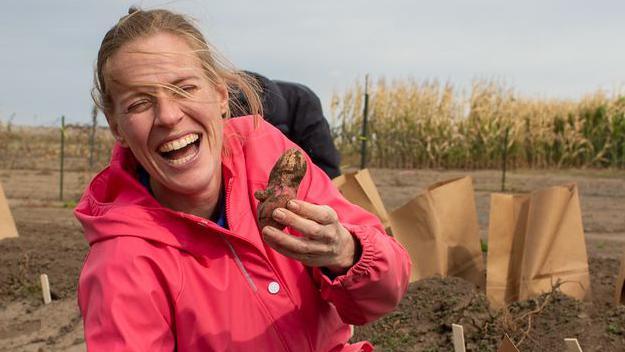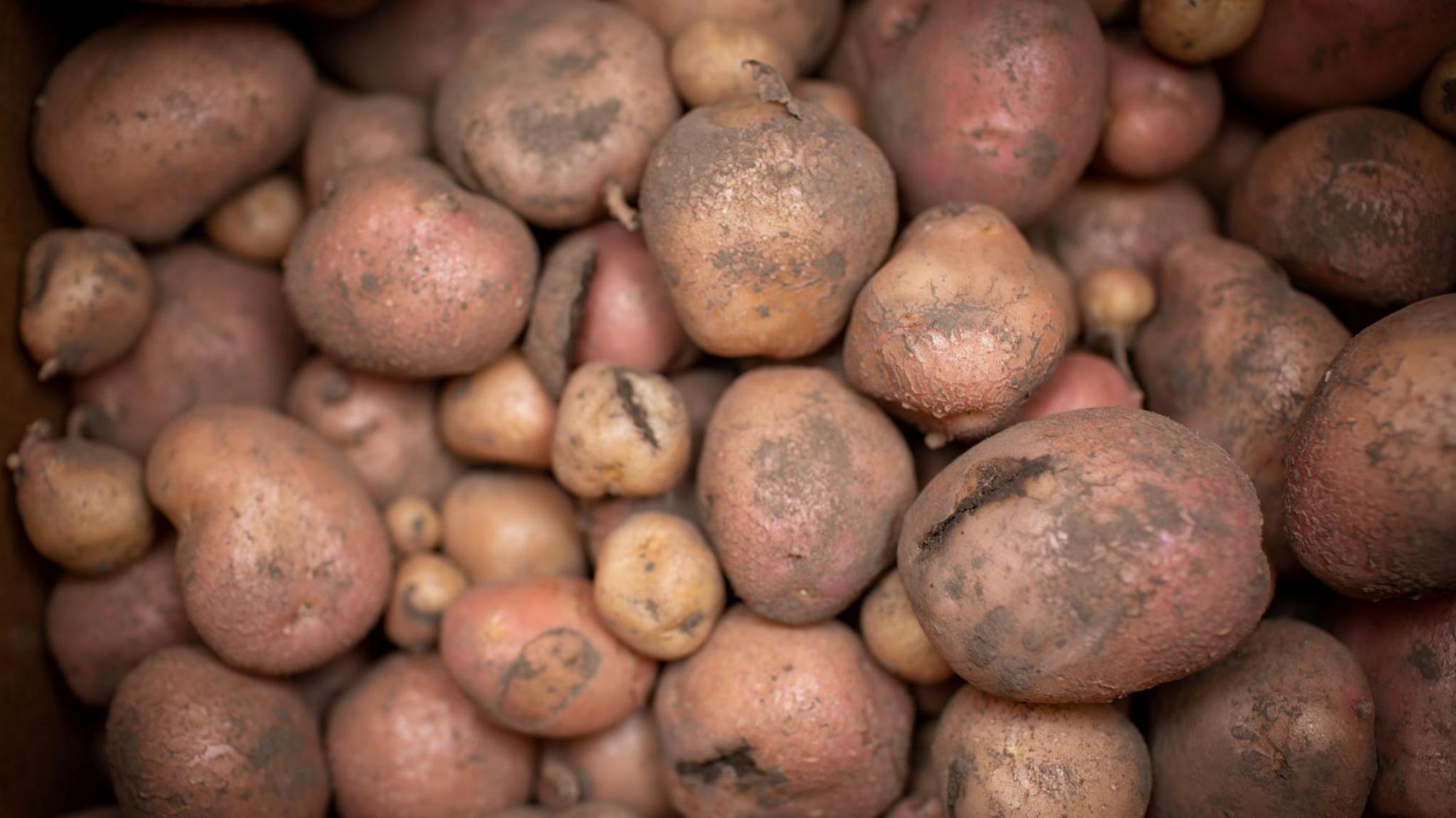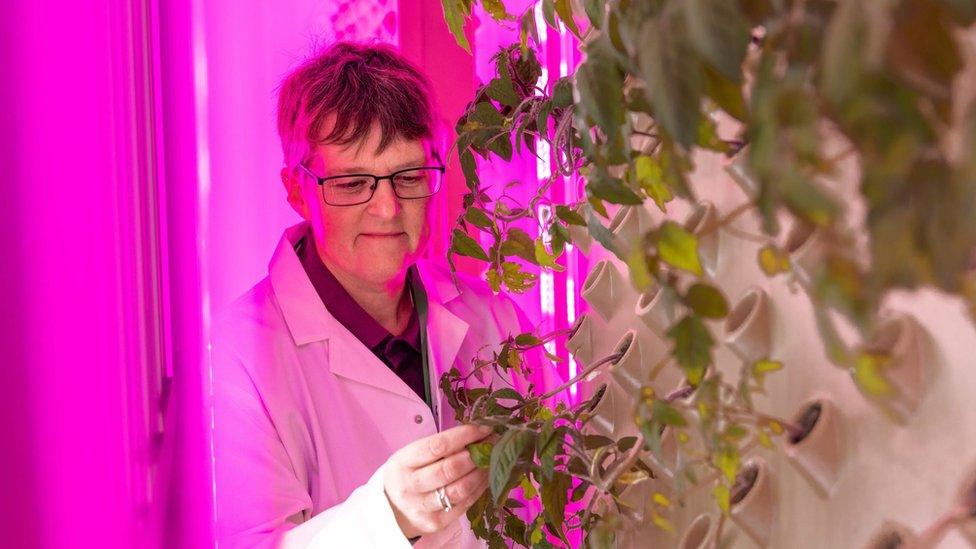Researchers developing heatwave-resistant potatoes

Dr Katherine Meacham-Hensold led the study in the US state of Illinois
- Published
Scientists are developing potatoes that could withstand heatwaves to help crops grow in a future affected by climate change.
A team of researchers from the University of Essex carried out field trials in the US state of Illinois and found an adapted plant grew up to 30% more potatoes under heat stress.
This was done by adding two genes which modified the plant's photorespiration process, leaving more energy for greater growth.
Authors of the paper, published in the journal Global Change Biology, described the step as "a promising avenue for yield increases in the face of a warming planet".
Multi-location field trials are needed to confirm the team's findings in varying environments.
A team led by Dr Katherine Meacham-Hensold and made up of people from the University of Illinois and the University of Essex worked on the RIPE project, external.

There was no detrimental impact on the quality of the potatoes, despite the genetic engineering, according to the RIPE project study
Dr Meacham-Hensold said the work aimed to meet needs for food in the regions most at risk from global warming.
"The 30% increase in tuber mass observed in our field trials shows the promise of improving photosynthesis to enable climate-ready crops," she said.
The study also found there was no impact on the nutritional quality of the potato as a result of the genetic engineering.
Dr Amanda Cavanagh, of the University of Essex, said: "Our major food crops are under threat from climate change and our work has now confirmed that strategies to increase thermotolerance will translate from model to food crops.
"This work could have a huge impact in the developing world and help safeguard crops for the people on the frontline of climate change."
Get in touch
Do you have a story suggestion for Essex?
Follow Essex news on BBC Sounds, Facebook, external, Instagram, external and X, external.
You may also be interested in
- Published8 October 2024

- Published8 May 2024
